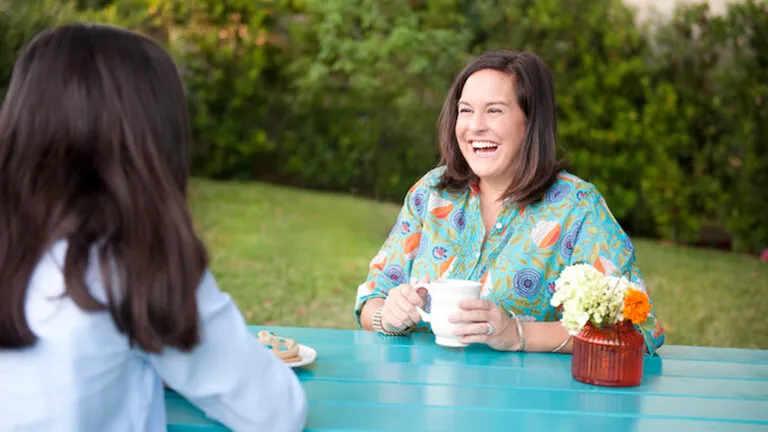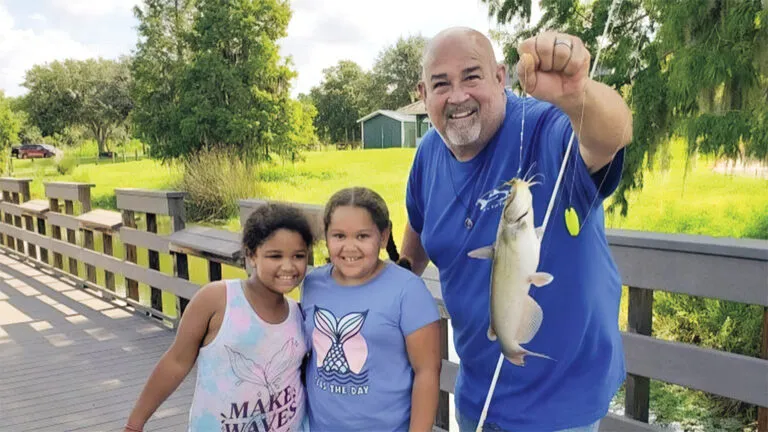Memorial Day was a few weeks away, and Lisa Cowan was trying to figure out what to do with her sons, Paul, 10, and Scott, nine. They seemed to think Memorial Day was just another day off, and she was afraid that as soon as school let out they’d run straight to the mall or the movies, or plop down on the couch to play the latest video game and eat junk food until the long weekend was over.
An avid long-distance runner, Lisa had seen a lot of the countryside up close. She loved the farmland around their home outside Kansas City, and the small towns, some little more than a main street that looked like it hadn’t changed in 50 years.
In every one there was an American flag prominently displayed and, more often than not, a VFW post. “I wanted my kids to experience those places,” Lisa says. “Then I thought: Why not organize a road race for them?” Her kids were excited about the idea. “We set an ambitious goal for ourselves,” Lisa explains, “to run across Kansas on Memorial Day weekend, and we decided to do it for a good cause, too, raising money for hospitalized veterans.”
Paul and Scott’s friends from Kansas City Christian School also wanted to get involved, and the whole group—24 in all—began to collect pledges from sponsors.
Lisa contacted a representative of the VFW, Lester Wendt, who helped her plan their route—400 miles from the western end of Kansas to the capital at Topeka, making sure to pass through as many towns with VFW posts as possible.
Lisa divided the runners into three groups, each one supervised by parent volunteers. The groups ran one behind the other, 15 miles apart. Each boy ran about eight miles a day, a mile at a time, relay fashion. “Some of the boys were on the track team,” Lisa says, “and some had never run a whole mile before in their lives. But as soon as we hit the road, the distance didn’t seem to matter.”
Early that Friday morning, having left Kansas City and its suburbs, malls and fast-food places far behind, they headed out into open country.
They began near Tribune, Kansas, and soon they were running under sunny spring skies, through wide green fields, past feed lots, farms and silos. And in every town, folks turned out to greet them, especially vets from the local VFW posts, who lined the streets with flags and balloons, or just gave a friendly wave and an encouraging word.
At night the posts became dormitories. The vets and their wives cooked dinner for the young runners, then they all gathered to say grace. “We were trying to thank them,” Lisa says, “but everywhere we went they thanked us just for being there.”
After dinner, the vets gave talks and showed films. “The kids loved it,” Lisa remembers. “They had a thousand questions.”
One African-American veteran spoke about segregation during the Korean War. Another man gave a slide show about his experiences in Vietnam. “Even guys who had a lot of trouble discussing their experiences found it easier to open up to the kids,” says Lester Wendt. “As a result, some of them talk about the past a lot more now.”
The runners were up before seven each morning, prayed together, ate a simple breakfast, then hit the road. “We had a good time even when we weren’t running,” Lisa recalls. “We’d tell jokes or have competitions—like who could take the goofiest photo. Many vets followed along in pickups or on motorcycles, and they’d talk and clown around along with the rest of us, or give us tours of their hometowns when we passed through.”
The run took four days in all, and by Memorial Day, when they arrived in Topeka, each kid had run 20 to 30 miles. Friends, family and veterans greeted the runners as they ran the final mile.
A former congressman presented Lisa and the boys with a $6,500 check for the donations they’d collected, made out to the VFW of Kansas. “It was wonderful,” says Lisa. “By getting out of the city, the kids learned their community is a lot bigger than their school and church. And by talking with the vets they learned who we honor on Memorial Day, and why they deserve our respect.”





